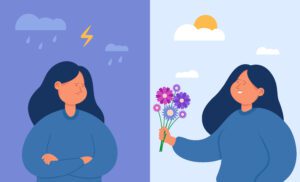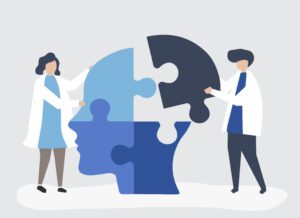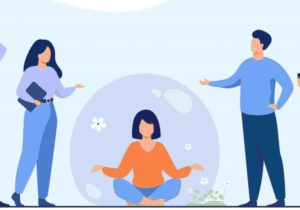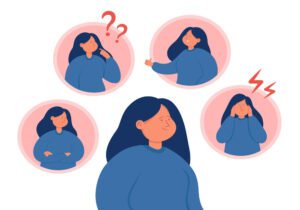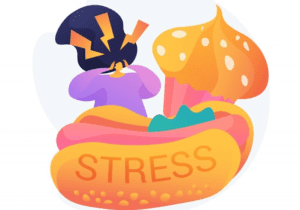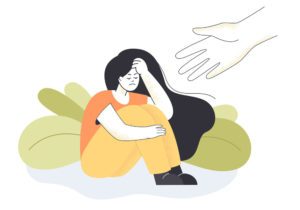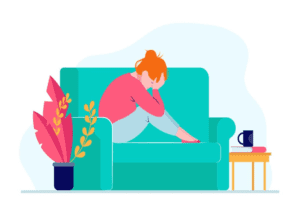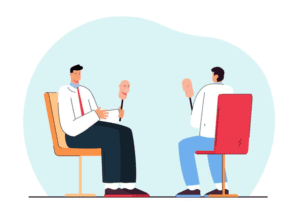Why Worrying Doesn’t Really Prepare You For The Worst
This article has been researched and written by Dalea Alawar. AI has not been used in producing this article.
Many people believe that a certain amount of anxiety before an exam, an interview, or before an important event sharpens their focus and makes them more ready. Or that anxiety about health issues can prevent serious health problems from happening because they are “catching” all the signs. Anxiety can make us feel like it’s helping us, or even that we need it.
When we feel anxious, our nervous system goes into a state of hyper-alertness. Our heart rate increases, our breathing becomes shallow, and our mind scans for danger. This gives us the sensation of being “switched on,” that we are spotting risks and “what if” scenarios that we otherwise may have missed had we not been on high alert. This is often an illusion. Anxiety doesn’t truly prepare us. Instead, it narrows our perspective and drains our resources.
The Tunnel Vision Effect:
One of the biggest downsides of anxiety is tunnel vision. This is when we focus intensely on specific problems or “what if” scenarios. While we may end up feeling prepared for the scenarios we had imagined, what also happens is that we miss other problems that our mind was not focused on. For example, think of an anxious interviewee, who spends hours anxiously preparing for questions that may be asked of him. He will likely focus on questions that he is afraid he does not know the answers to. Come interview day, likely a third of the questions he had prepared for were asked, and he was caught off guard with several questions he had not even considered!
Tunnel vision may make us feel like we are being vigilant, but it limits our ability to think more clearly and comprehensively about issues and we ironically often “miss” things anyway.
The Trap of Overplanning:
The most relatable way that anxiety shows up is in overthinking and overplanning for worst-case scenarios. On the surface, this looks like being thorough. In reality, it leads to mental exhaustion and paralysis. You can spend hours imagining failures rather than practicing effectively, or you procrastinate because preparation never feels “good enough”б and “good enough” feels so out of reach. So, you end up feeling tired from all the thinking and delaying meaningful action, which can impact your confidence and your actual readiness for something.
The Physiological Consequences of Feeling “Prepared” Anxiety comes with physical costs that challenge true readiness:
- Elevated stress hormones like cortisol interfere with memory recall and concentration.
- Muscle tension and shallow breathing disrupt steady, confident delivery when speaking.
- Racing thoughts make it harder to organize ideas or solve problems creatively.
Ironically, these physiological consequences of anxiety tend to result in not being effective in what you were planning for, which then reinforces your fear that you were not prepared enough.
A Healthier Way to Prepare:
Anxiety is an essential part of the human experience, and we cannot live without it. It can save us from dangerous situations, It is the level of anxiety that we experience that matters. High levels of anxiety are needed for life-or-death situations, not for interviews. A small degree of arousal can be quite effective at boosting performance and preparedness. Some nervous energy can help us stay focused, encourage us to prepare, to learn, and to be thoughtful about things. It is when anxiety moves beyond this helpful threshold that it starts to interfere with, rather than support, our abilities. So, how can we use anxiety to our advantage?
True preparation comes from clarity, not panic. Calm awareness helps you focus on what matters, remember information more easily, and make thoughtful choices. One of the most effective ways to prepare is to plan, learn, and/or practice during a state of calm. When you find yourself in a state of anxiety, take a break until you are back to feeling steady, and then return to preparation. Keep in mind, being prepared is not about being on high alert but about being steady.
How to Help Your Child with Anxiety Through Divorce
Divorce is a significant change that affects every member of a family. For children, the uncertainty and adjustments …
Depression vs Sadness: Understanding the Difference
While often used interchangeably, the terms “sadness” and “depression” represent distinct emotional states, each with …
5 Simple Mental Health Practices for Your Everyday Life: Nurturing Your Body & Mind
In today’s fast-paced world, it’s becoming increasingly evident that we need to place our mental health at the forefront
Ways to Reduce Anxiety in 2024
As we say farewell to 2022 and usher in the New Year, we look towards the future. With New Year’s resolutions on the docket, many of us are striving to achieve a calm life …
Navigating Compassion Fatigue in the Digital Age: A Call to Prioritize Mental Well-Being
Amid the constant stream of information and images that flood our screens, the toll on our mental well-being can be …
The Link Between Anxiety and Overeating
All of us have encountered moments of stress and unease throughout our lives. These feelings of anxiety not only bring…
10 Steps To Fix A Toxic Relationship
Every relationship has its fair share of ups and downs, but when toxicity creeps in, it can become a serious challenge. Toxic relationships can be emotionally draining and detrimental to our overall …
Exploring the Benefits of EMDR Therapy for Anxiety and Depression
Anxiety and depression are two of the most common mental health disorders worldwide, affecting millions of people every year. While traditional talk therapy and medication can be …
Health Effects of Untreated Depression
It’s very common to feel sadness at one point or another in our life. Depending on your specific circumstances, you may even feel …
Psychologists vs. Psychiatrists – What’s the Difference?
Clients shouldn’t have to jump through hoops to understand who the perfect candidate is for treating their emotional and/or behavioral struggles. Yet, understanding the type of provider you should see during …


